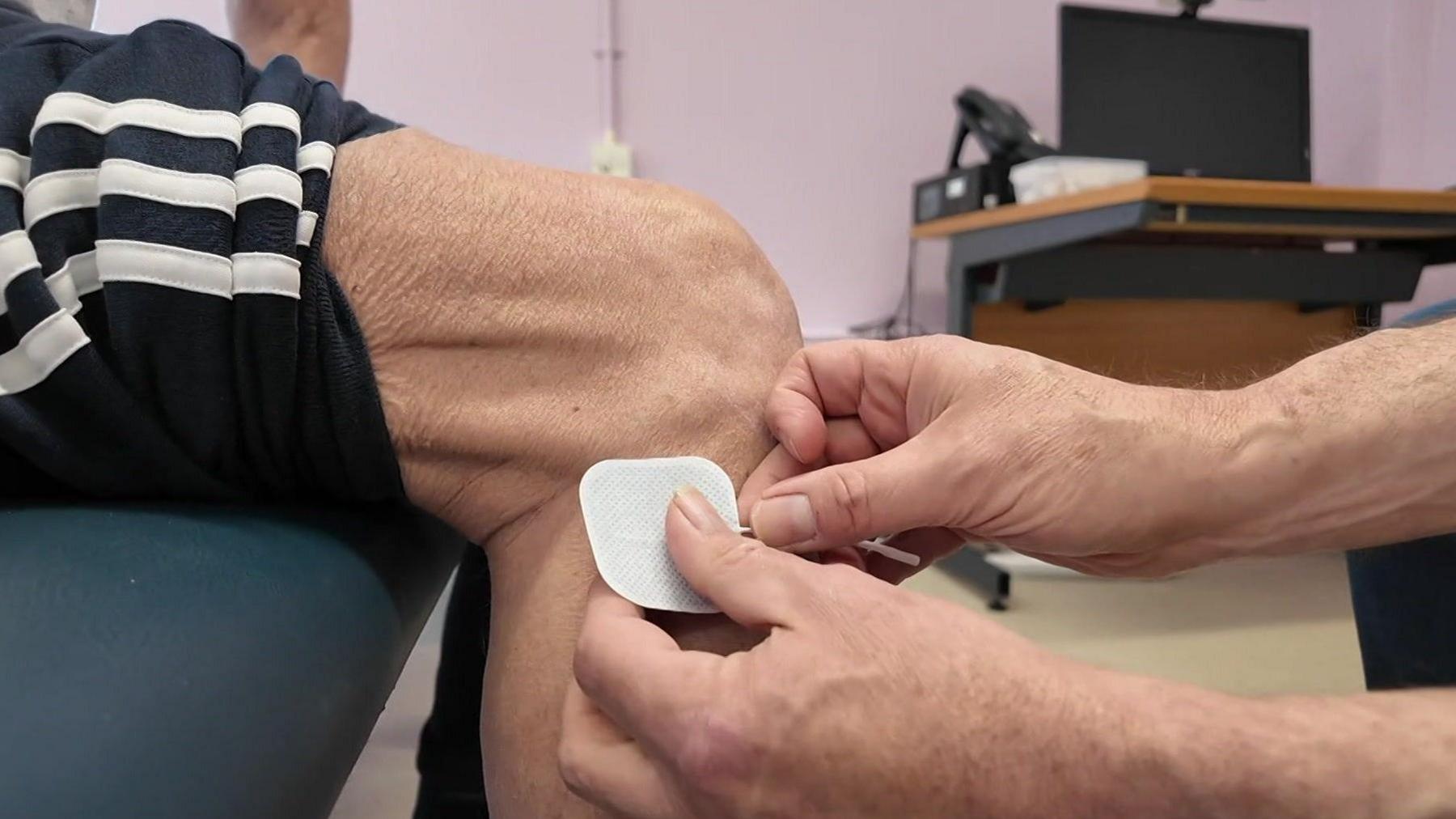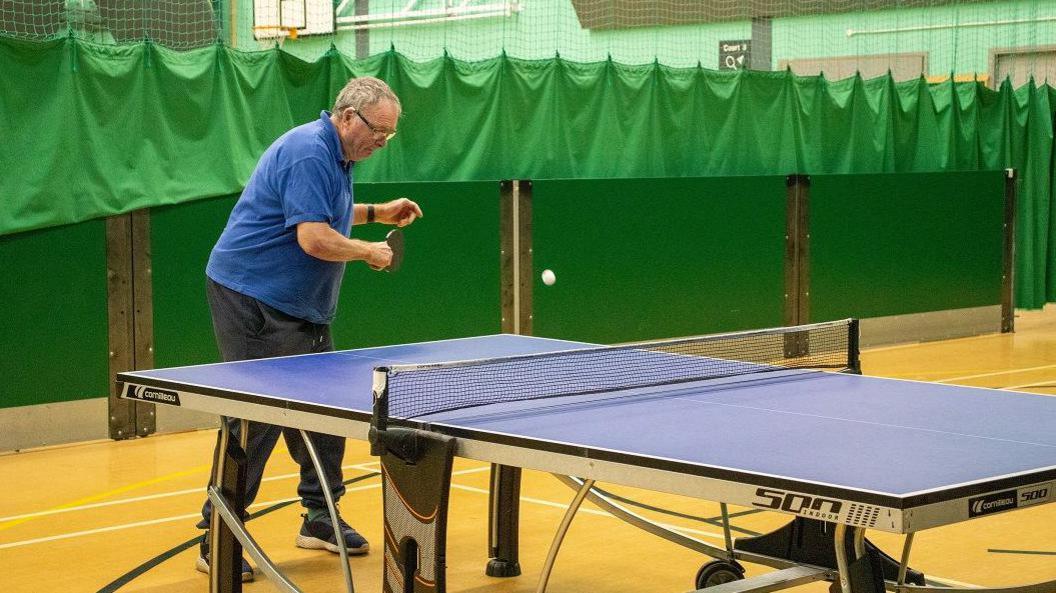Study helps Parkinson's patients stay on their feet

David Muskett plays walking football with the Dorset Parky Striders
- Published
A Parkinson's disease patient has been able to play sports he thought he had "given up for good" after wearable technology helped improve his balance and movement.
David Muskett, from Bournemouth, is taking part in a trial run by the University of Southampton that uses Functional Electrical Stimulation (FES) to improve mobility and reduce falls.
Electrical pads attached to the leg create a nerve impulse which causes the muscles to move.
"It's feeling like I'm walking before I had Parkinson's," Mr Musket said.
The 72-year-old was diagnosed with the neurological condition 10 years ago.
He was fitted with the FES device at Salisbury Hospital as part of the trial aimed at finding out if it can get movement in paralysed or weak muscles.
A pad stuck to Mr Muskett's leg transfers a small stimulation current, which is triggered by a switch in his shoe.
It creates a nerve impulse that causes the leg muscles to move.
More that 200 people with Parkinson's at eight sites around the UK are testing the device, which is already used by people with Multiple Sclerosis and stroke patients to improve their walking ability.
Mr Muskett, who was first diagnosed with the neurological condition 10 years ago, has been to take part in badminton and golf, sports he thought he would never be able to play again.
He has also joined a local walking football team made of people with Parkinson's - the Dorset Parky Striders.
"Normally I fall over a few times when I'm playing, but this is just amazing. Balance, everything I just feel more confident moving around the pitch.
"I feel I'm walking normally, I've good balance, I can feel the acceleration when I'm walking which I never had before"

Patches are attached to the leg to transmit an electrical impulse
The trial follows an earlier feasibility study in which participants reported increased walking speed and fewer falls.
Prof Maggie Donovan-Hall, from the University of Southampton, said the earlier study showed participants "walked faster, took larger strides, and had fewer falls".
"Interestingly, these benefits persisted even after some participants stopped using the device, indicating that it had a 'training effect'," she said.
"Participants also reported important wider benefits to their overall wellbeing, independence and family life."
Patients are already taking part at hospitals in Bristol, Birmingham, Leeds, Salisbury, Swansea, Derby and Ipswich, as well as the Betsi Cadwaladr University Health Board in North Wales.
Researchers are calling for more people to come forward to take part in the study, which it is hoped could see devices made available as a low-cast treatment on the NHS to those with Parkinson's Disease.
Parkinson's disease
Parkinson's Disease affects about 148,000 people in the UK
It is caused by a loss of nerve cells in part of the brain called the substantia nigra
A loss of the chemical dopamine, which plays a vital role in regulating movement, leads to involuntary shaking of particular parts of the body
Although there's currently no cure, treatments such as physiotherapy occupational therapy and medication are available to help reduce the main symptoms and maintain quality of life for as long as possible
Parkinson's Disease is the second most prevalent neurodegenerative condition in the UK, after Alzheimer's disease.
It is also growing faster than any other neurological condition, with about 18,000 new diagnoses each year.
Source: NHS
Get in touch
Do you have a story BBC Hampshire & Isle of Wight should cover?
You can follow BBC Hampshire & Isle of Wight on Facebook, external, X (Twitter), external, or Instagram, external.
- Published13 May

- Published11 April
